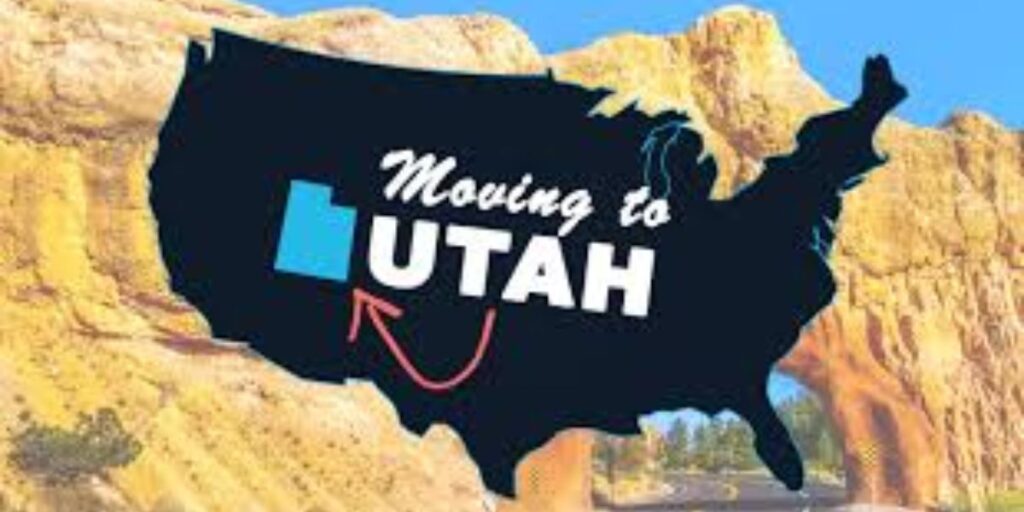Utah often makes headlines for its stunning landscapes, family-friendly cities, and booming tech sector. But before you pack your bags and head to the Beehive State, it’s worth taking a closer look at the less-advertised side of living there. While many thrive in Utah, it’s not for everyone — and here are eight reasons why it might not be the right fit for you.
1. The Cost of Housing Is Rising Fast
Utah’s popularity has come at a price—literally. Once considered an affordable place to live, the state has seen a sharp rise in housing costs, especially in cities like Salt Lake City, Provo, and St. George. The demand for housing is high, and the supply hasn’t kept pace. That means newcomers may face fierce competition and high prices whether buying or renting.
Even smaller towns and rural areas are seeing inflated home values, making it harder to find affordable options.
2. Limited Nightlife and Entertainment Options
If you’re used to a bustling nightlife scene filled with bars, clubs, and late-night eateries, Utah might feel a little… quiet. Thanks to strict liquor laws and a predominantly conservative culture, the nightlife is noticeably tamer than in other states. Bars are fewer and often have unusual rules about alcohol sales, including limitations on drink strength and required food purchases.
For people craving a dynamic urban lifestyle, this can be a real adjustment.
3. Heavy Religious Influence
Approximately 60% of Utah residents are members of The Church of Jesus Christ of Latter-day Saints (LDS), and their cultural and social influence is felt across the state. While Utah is becoming more diverse, LDS values still shape everything from laws and education to local customs and community expectations.
Those not affiliated with the church may sometimes feel like outsiders, especially in smaller towns. The dominance of a single religion can impact social dynamics, political leanings, and even workplace culture.
4. Poor Air Quality in Certain Areas
While Utah’s mountains and canyons are breathtaking, some urban areas suffer from surprisingly bad air quality. Salt Lake City, in particular, experiences “inversion” during the winter—when cold air traps pollution close to the ground—leading to hazy skies and health concerns.
During the summer, wildfires and dust storms can further degrade the air. People with asthma or other respiratory issues should definitely consider this factor before moving.
5. Limited Diversity
Utah is less racially and culturally diverse compared to other U.S. states. According to recent census data, over 75% of the population is white. While communities are gradually becoming more multicultural, minorities may still find it harder to find representation, community resources, or cultural hubs that reflect their heritage.
This can be a culture shock for people moving from more diverse regions, and it may impact one’s sense of belonging.
6. Harsh Winters and Hot Summers
Utah’s climate is known for extremes. Winters bring heavy snowfall and freezing temperatures, especially in northern regions and mountainous areas. While this is paradise for skiers, it can be a burden for those not used to shoveling snow or navigating icy roads.
Meanwhile, summers in southern Utah can be brutally hot, with temperatures easily exceeding 100°F. The dry heat can also be hard on those used to milder climates.
7. Public Transportation Can Be Limited
Outside of Salt Lake City and a few surrounding areas, public transportation in Utah is lacking. Many cities and towns are built for cars, and owning a vehicle is practically essential.
If you’re used to walking, biking, or relying on buses and trains, you may find it inconvenient to get around without driving. Even the Utah Transit Authority (UTA) network, while functional in some parts, doesn’t cover the entire metro area efficiently.
8. Alcohol Laws Can Be Confusing
Utah has some of the strictest alcohol laws in the country, and they can trip up newcomers. For example, the alcohol content of draft beer sold in bars and restaurants is limited, and liquor can only be purchased at state-run stores. Many grocery stores only sell lower-alcohol versions of beer.
These laws stem from the state’s conservative history and religious influence and can be frustrating for those used to more relaxed regulations.
Conclusion
Utah is a beautiful state with incredible outdoor opportunities and a thriving economy, especially in the tech sector. However, it’s not for everyone. From rising housing costs and strict alcohol laws to religious dominance and environmental concerns, there are several important factors to weigh before making the move.
If you value diversity, late-night culture, or a more progressive social environment, you might want to think twice—or at least visit for an extended stay to see if Utah truly feels like home. As with any move, it’s all about finding the right fit for your lifestyle and values.





More Stories
8 Reasons Utah Might Not Be the Dream Move You Think It Is
8 Reasons Utah Might Not Be the Dream Move You Think It Is
8 Reasons Utah Might Not Be the Dream Move You Think It Is